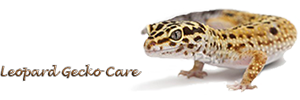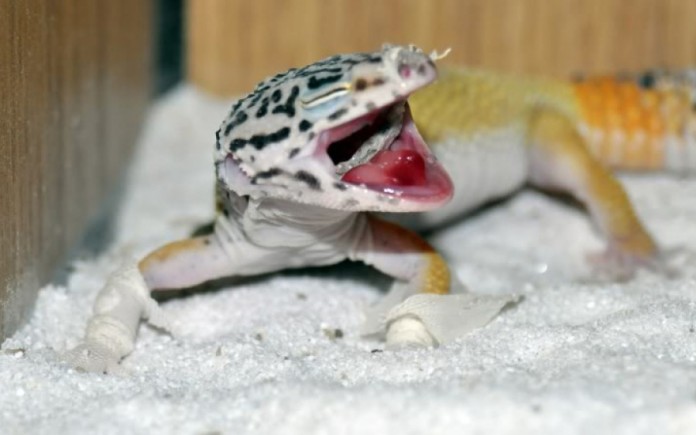Leopard gecko health and illness may be a great challenge to the entire pet hobbyist community. Even with the greatest care taken, there are few major health issues may be seen.
Shedding
Leopard geckos do shed their skin. The most frequency period is during juvenile which is the time they grow rapidly. During adulthood, shedding may be once in a month.
The symptom that is may be worrying for a pet hobbyist is that leopard geckos tend to look like discoloration, pale, dull or white in its color. You should provide extra nutrients and calciumfor them once you see this. Increase the misting and spray more often in the tank to assist the shedding process.
Tail Loss
Gecko tail loss is common as this is the nature process when geckos are frightened and threaten. In nature, they can distract enemy attention and try to escape from danger.
If you have a leopard gecko with loss tail, try to separate them with other geckos and put it back to the original tank when the tail is fully grown.
New tail will within few days. However, it takes about 3 to 4 months to recover the full tail. Take note that new tail might not be as nice as previous tail. Handle your leopard gecko with care.
Impaction
If you leopard gecko show the symptoms of vomiting, lacking appetite or lumpy stomach, this might me the sign of impactions which may cause serious health problem to the gecko.
The cause of impactions maybe the lack of calcium (leopard gecko will eat the substrate to supplement its diet), dehydration (lacking of fresh water), or overfeeding.
It is recommended that you seek your veterinarian for leopard gecko impactions problem. However, these may be the home treatment for impaction that you may try out.
- May sure easy access to fresh water that changed daily
- Replace your natural substrate with paper towel
- Better feeding schedule
- 10 minutes warm water soak 2 times a day
- Seeking your veterinarian for medical treatments like surgery to remove object
There are many causes may affect your leopard gecko’s healthsuch as incorrect cage lighting and temperature setting, vivarium setup, malnutrion due to wrong choices of food for feedingand others. Perhaps one of the best book about taking care of leopard gecko that you can refer to is Secrets to Save Your Leopard Gecko from James, it is one of my best references so far. Many good information you can find there.







